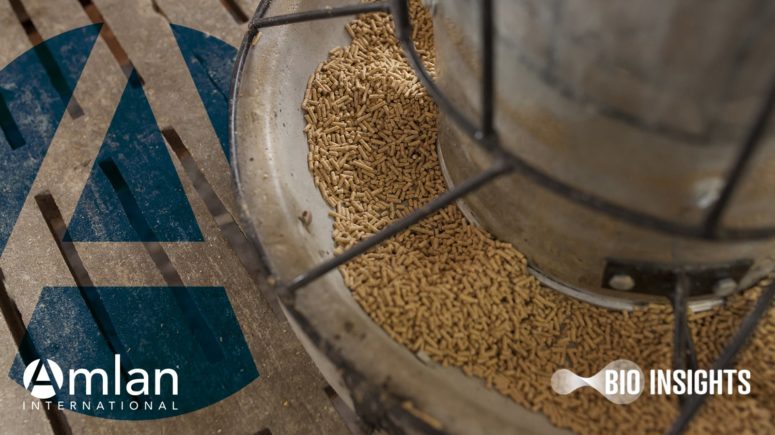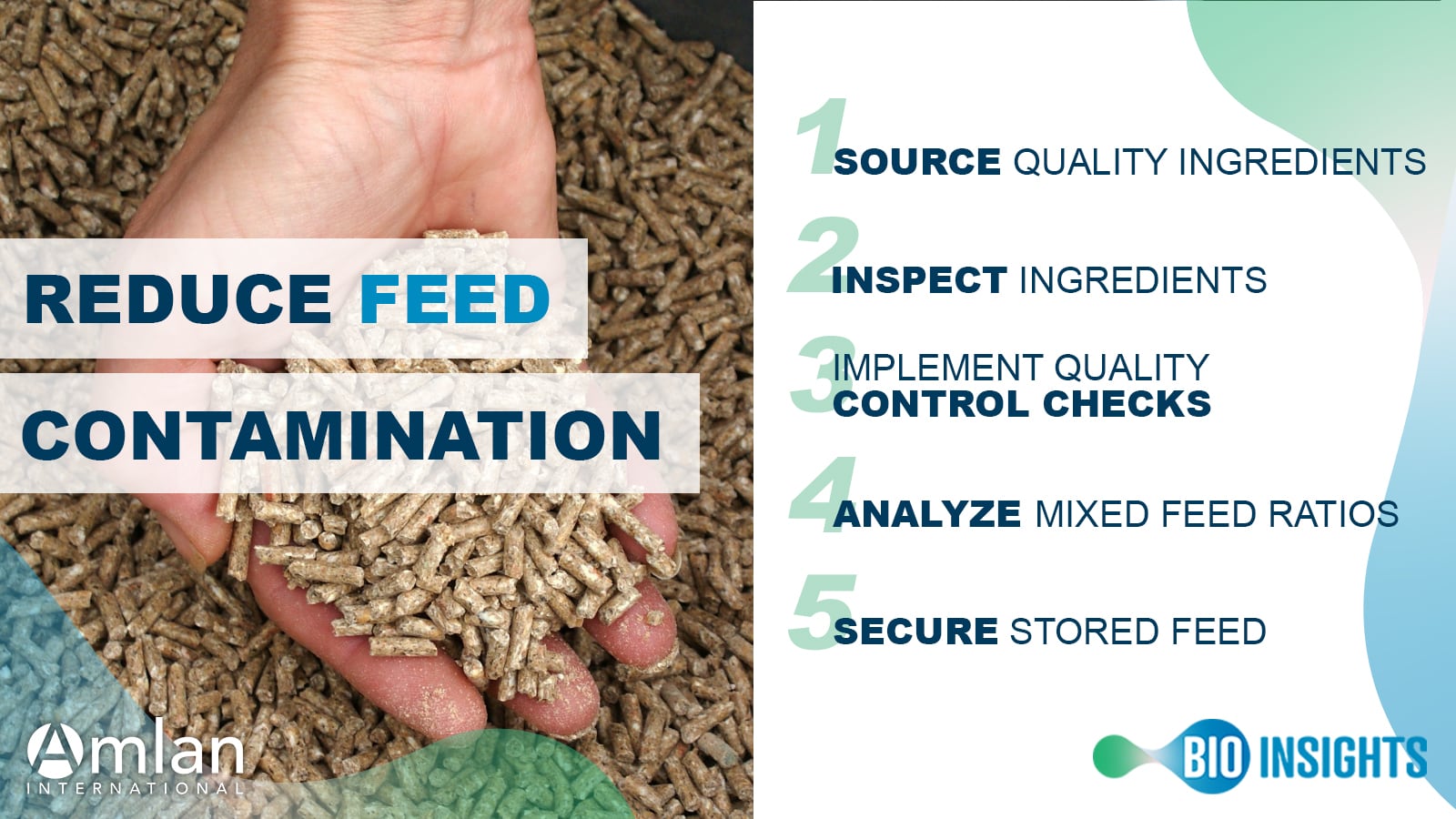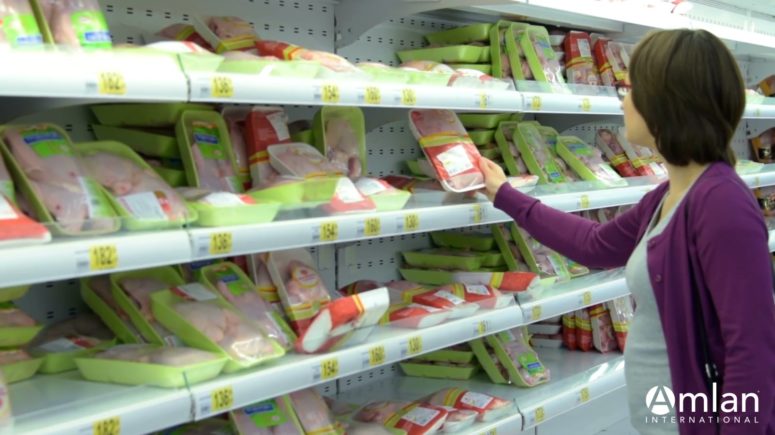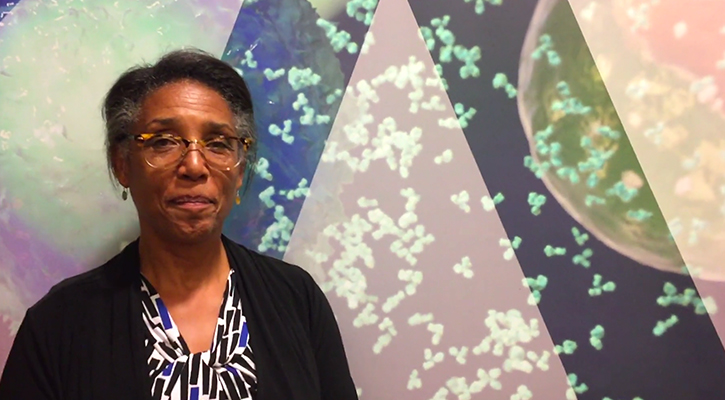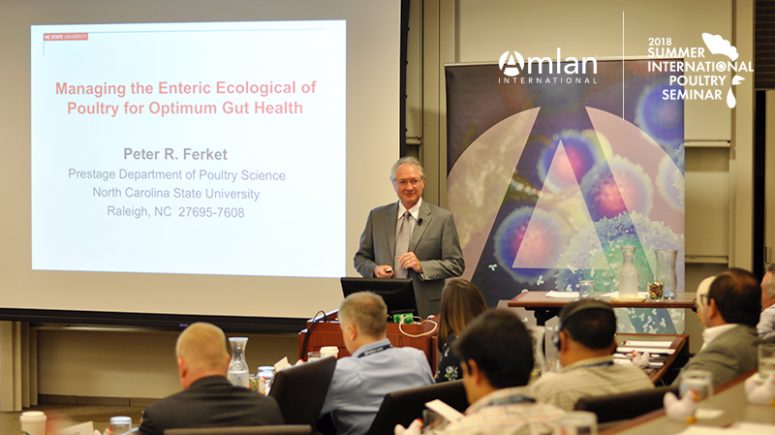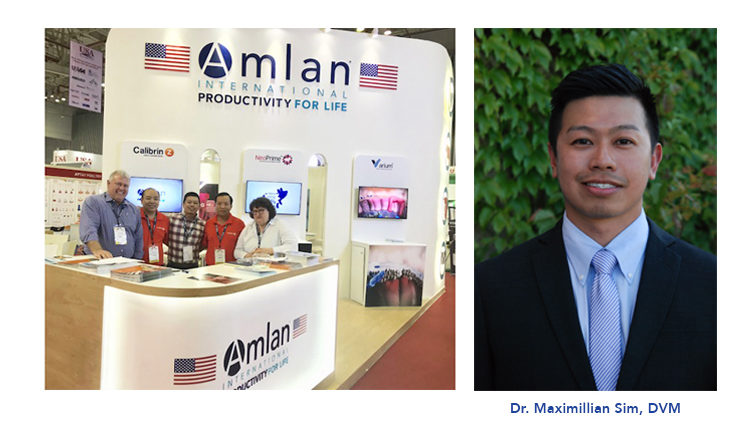The benefits of pelleting feed have been an area of interest for decades; however, recent research suggests that the extent of the performance improvements may depend on other diet characteristics. With feed estimated to be around 70% of production costs for poultry and swine producers, the benefit-cost ratio is an important factor when determining what form the diet should take.
Pellet Quality
Pelleting can improve production performance, although research has found that this can depend on the quality of the pellet. Positive production effects can be limited if the pellet quality is poor and there is a large percentage of fines in the feed. In a broiler study,1 an improvement in feed intake, live weight gain, feed conversion rate (FCR) and carcass weight was observed as the percent of pellets in the feed increased. A model based on this research indicated a 0.4-point increase in FCR, a 10 g carcass-weight increase and a 4 g breast-weight improvement for every 10% increase in intact pellets in the feed.
Pellet and Nutrient Density Relationship
The extent of production improvements from pelleting may also depend on the diet formulation. Recent research suggests that the level of nutrient density may determine how beneficial pelleting really is. In two broiler studies,2,3 five diet nutrient density levels were compared in either mash or pellet form. As expected, broilers fed pelleted diets had better performance than mash-fed birds at all nutrient density levels. However, the pellet benefits were greater at the lowest nutrient density and positive performance responses to pelleting decreased as nutrient density increased. Therefore, the nutrient density of diets may be an important consideration during diet formulation to ensure that the extra expense of pelleting delivers the expected increase in performance.
Mitigating Mycotoxin Effects
Another potential benefit of pelleting feed is the reduction of negative performance effects observed when feed is contaminated with the mycotoxin deoxynivalenol (DON). In two swine studies,4,5 pelleting DON-contaminated diets improved average daily gain and gain to feed (G:F), ameliorating the reduction in performance caused by DON-contaminated feed. The concentration of DON in the diet was not altered by pelleting, but the performance benefits of pelleting were able to mitigate the DON-related production losses. Numerically, the increase in daily gain due to pelleting was greater in the DON-contaminated feed than the control feed. It is not clear however, if negative effects from contamination by other mycotoxins could also be abated by pelleting, so using a natural mycotoxin control product is recommended. To identify if feed is contaminated with mycotoxins and at what concentration, BioInsights Mycotoxin Diagnostic Services, offered by Amlan International, can test feed on-site and provide an accurate quantitative result within 10 minutes.
Other Benefits of Pelleting
Pelleting can increase palatability by masking unpleasant ingredient tastes and reducing ingredient sorting. Production efficiencies also improve as less feed is wasted and time allocated to eating is reduced, which allows more energy to be dedicated to growth.
Pelleting feed has multiple logistic benefits including improving feed flow through bins and less space required for storage. Ingredient separation during storage and transport and dust production are also reduced — depending on the quality of the pellet. Low-quality pellets that have a large percentage of fines may still have these issues.
Pelleting feed has many potential advantages, as long as all components of the diet formulation are considered, pellet quality is maximized and the pellets, like all feed, are manufactured safely following recommended guidelines.
References
- Lilly K, Gehring C, Beaman K, Turk P, Sperow M, Moritz J. Examining the relationships between pellet quality, broiler performance, and bird sex. J Appl Poult Res. 2011;20:231–239. https://doi.org/10.3382/japr.2009-00138
- Abdollahia M, Zaefariana F, Ravindrana V, Selleb P. The interactive influence of dietary nutrient density and feed form on the performance of broiler chickens. Anim Feed Sci Technol. 2018;239:33–43.
https://doi.org/10.1016/j.anifeedsci.2018.03.005 - Hamungalu O, Zaefarian F, Abdollahi M, Ravindran V. Performance response of broilers to feeding pelleted diets is influenced by dietary nutrient density. Anim Feed Sci Technol. 2020;268:114613
https://doi.org/10.1016/j.anifeedsci.2020.114613 - Frobose H, Fruge E, Tokach M, Hansen E, DeRouchey J, Dritz S, Goodband R, Nelssen J. The effects of deoxynivalenol-contaminated corn dried distillers grains with solubles in nursery pig diets and potential for mitigation by commercially available feed additives. J Anim Sci. 2015;93:1074–1088. https://doi.org/10.2527/jas.2013-6883
- Frobose H, Fruge E, Tokach M, Hansen E, DeRouchey J, Dritz S, Goodband R, Nelssen J. The influence of pelleting and supplementing sodium metabisulfite (Na2S2O5) on nursery pigs fed diets contaminated with deoxynivalenol. Anim Feed Sci Technol. 2015;210:152–164. https://doi.org/10.1016/j.anifeedsci.2015.09.020
